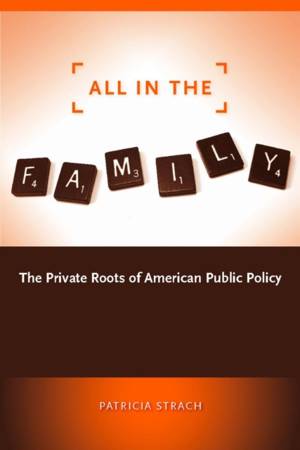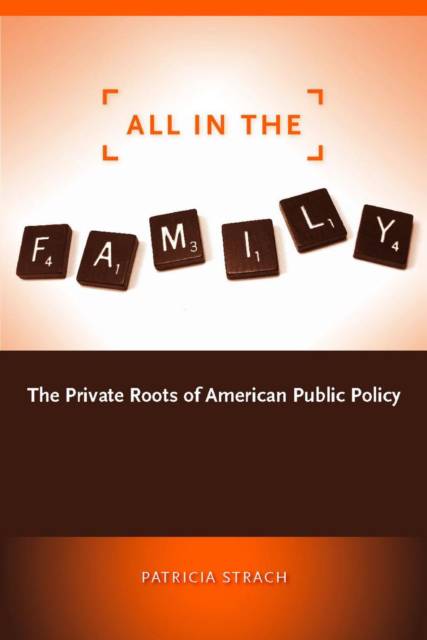
Bedankt voor het vertrouwen het afgelopen jaar! Om jou te bedanken bieden we GRATIS verzending (in België) aan op alles gedurende de hele maand januari.
- Afhalen na 1 uur in een winkel met voorraad
- In januari gratis thuislevering in België
- Ruim aanbod met 7 miljoen producten
Bedankt voor het vertrouwen het afgelopen jaar! Om jou te bedanken bieden we GRATIS verzending (in België) aan op alles gedurende de hele maand januari.
- Afhalen na 1 uur in een winkel met voorraad
- In januari gratis thuislevering in België
- Ruim aanbod met 7 miljoen producten
Zoeken
€ 42,45
+ 84 punten
Uitvoering
Omschrijving
Even a casual observer of American politics might notice the importance of family in political rhetoric like the Republicans' "family values" and the Democrats' "working families," but we know surprisingly little about the role of family in American politics. We typically think of family as "private" and out of the public realm of politics or we associate family and public policy with so-called family policies, such as welfare or family leave. The goal of this book is to clarify the relationship between seemingly private family life and federal public policies. It asks two important questions: How do policymakers employ the concept of family in the policy process? And, what are the consequences of employing this concept broadly in public policy? All in the Family is the first empirical study of family in the American policy process. It shows that, far from being "private" or only a part of "family policy," family is an important part of American policymaking even in seemingly "non-family" policies like immigration, tax, and agriculture. Policymakers rely on family to determine eligibility, distribute goods, and provide justification for their positions across a wide range of policies. Ultimately, this book shows that seemingly private life makes American public policy possible, and it suggests that the ability of policymakers to accomplish their goals is intimately tied to the strength and organization of American families. Yet, it also demonstrates that relying on a dynamic institution like family can have unintended consequences, potentially destabilizing policies over time.
Specificaties
Betrokkenen
- Auteur(s):
- Uitgeverij:
Inhoud
- Aantal bladzijden:
- 264
- Taal:
- Engels
Eigenschappen
- Productcode (EAN):
- 9780804756099
- Verschijningsdatum:
- 13/06/2007
- Uitvoering:
- Paperback
- Formaat:
- Trade paperback (VS)
- Afmetingen:
- 155 mm x 226 mm
- Gewicht:
- 362 g

Alleen bij Standaard Boekhandel
+ 84 punten op je klantenkaart van Standaard Boekhandel
Beoordelingen
We publiceren alleen reviews die voldoen aan de voorwaarden voor reviews. Bekijk onze voorwaarden voor reviews.









